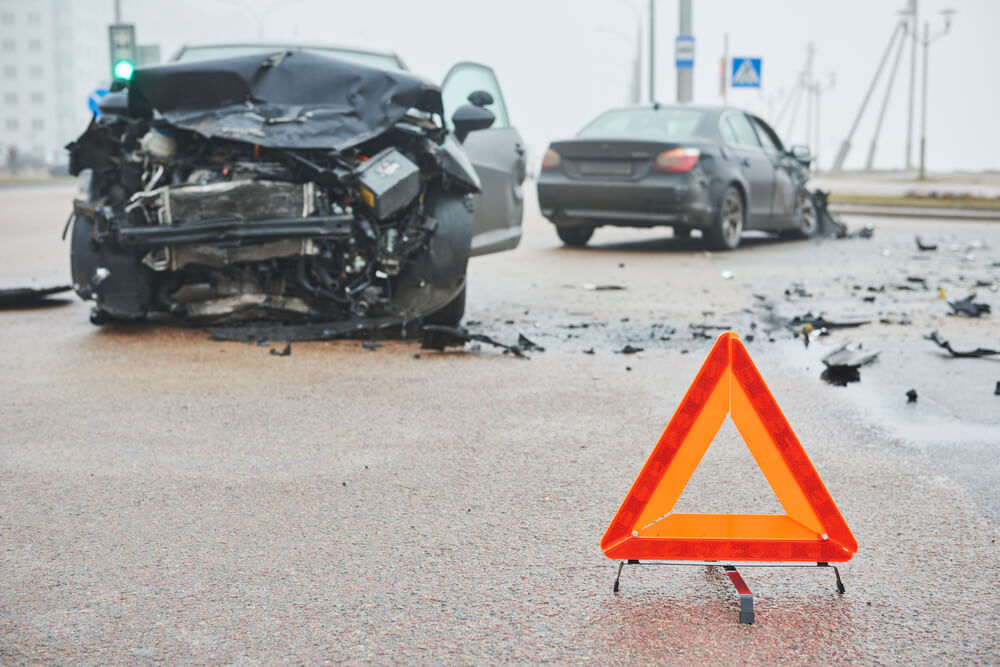
Many drivers are likely familiar with the five most dangerous highways in Georgia. A recent study by MoneyGeek identified stretches of Moreland Avenue (Georgia 42), I-20, I-285, Georgia 85, and Old National Highway (Georgia 279) as the state’s leading roads for accidents and deaths. Unsurprisingly, the majority of Georgia’s most dangerous roads and highways are in the Atlanta metro area, a region known for heavy traffic and high numbers of collisions.
What Makes These Roads So Dangerous?
While there are unique elements in every Georgia car accident, some common factors make the roads listed above more dangerous. These factors include:
- Heavy traffic in the Atlanta metro area – The roads with the highest accident rates are often packed with commuters, making collisions more likely during rush hours.
- Challenging road layouts – Many of these roads feature sharp curves, narrow lanes, and limited visibility, making it difficult for drivers to react quickly to hazards.
- High speeds – High traffic speeds increase the severity of collisions because vehicles traveling faster collide with far greater force than those traveling at lower speeds.
- Driver fatigue and inattention – Long commutes can cause drivers to become tired or distracted, leading to poor decisions behind the wheel.
- Poor lighting in certain areas – Some stretches of these roads are not well-lit, making it harder for drivers to see and avoid potential hazards, particularly at night.
What Are the Frequent Causes of Accidents on Georgia Roads?
Most Georgia car accidents involve human error, making them preventable tragedies drivers could avoid by being more careful. The most common causes of collisions on Georgia roads include:
Distracted Driving
One of the top causes of accidents in Georgia is distracted driving. Whether texting, talking on the phone, or adjusting the GPS, driver distractions can cause severe crashes and often have catastrophic consequences.
Speeding
Exceeding the speed limit is a common problem, especially on highways. Speeding reduces a driver’s ability to stop quickly while increasing the severity of crashes when they occur due to the stronger impact force.
Driving Under the Influence
Alcohol and drug impairment are major contributors to car wrecks. Even a small amount of alcohol or drugs can affect a driver’s judgment, reaction time, and coordination, making a potentially deadly crash more likely.
Reckless Driving
Aggressive behaviors behind the wheel, such as tailgating, weaving in and out of lanes, and running red lights, significantly increase the chances of collisions. These actions put everyone on the road at risk, including the aggressive drivers.
Weather Conditions
Rain, fog, and icy roads can lead to accidents, particularly when drivers don’t adjust their speed or driving style to account for slippery or low-visibility conditions. It might seem like drivers can’t be liable for bad weather, but they can control and be held responsible for how they react.
Failure to Yield
Many accidents happen when drivers fail to yield the right-of-way at intersections, leading to dangerous T-bone or rear-end crashes. Crashes can also result from drivers making unsafe turns without accounting for oncoming traffic.
Fatigue
Drowsy driving is often overlooked but can be just as dangerous as driving under the influence. Fatigued drivers have slower reaction times and may even fall asleep at the wheel, putting themselves and others on the road in danger.
Are There Certain Steps Drivers Can Take to Avoid Accidents?
While not all accidents are preventable, drivers can reduce their risk by practicing defensive driving techniques and staying alert on the road. Here are some steps you can take to lower your risk of a crash:
- Stay focused – Always keep your attention focused on the road. Avoid distractions like texting, adjusting the radio, or eating while driving.
- Obey the speed limit – Driving at a safe speed for road conditions is one of the best ways to avoid accidents. Speeding impacts your ability to react to sudden changes in traffic.
- Keep a safe distance – Maintain a safe following distance between your car and the vehicle in front of you. This gives you more time to stop if the car ahead brakes suddenly.
- Be cautious in bad weather – When driving in rain, fog, or other severe weather conditions, reduce your speed and increase your following distance to avoid losing control of the vehicle and give yourself more time to react if you lose traction.
- Avoid aggressive driving – Stay calm and patient, even in heavy traffic. Avoid tailgating, weaving through lanes, and other aggressive behaviors that increase the likelihood of a crash.
What Should I Do If I Have Been in a Car Crash in Georgia?
If you sustain injuries in a collision, follow these steps once you have sought medical treatment to protect your legal rights:
- Follow your doctor’s advice – Continue any prescribed treatments, therapies, or follow-up appointments. This step helps you properly document your injuries and treatments, which is crucial if you file a personal injury claim.
- Keep records of medical bills and expenses – Track all medical costs related to the accident, including hospital visits, prescriptions, and physical therapy. These records will help you pursue compensation for your medical expenses.
- Document your recovery – Keep a recorded or written journal detailing your recovery process, including pain levels, mobility issues, and how the injuries affect your daily life. A detailed journal can illustrate the collision’s impact on your quality of life.
- Notify your insurance company – Contact your insurance provider to report the accident if you haven’t already. Give them the necessary information, but avoid admitting fault for the crash. It’s also vital to decline to give any recorded statements until you speak to an attorney.
- Avoid discussing the accident on social media – Be cautious about your social media activity after a crash. Insurance companies may take your posts out of context to downplay the severity of your injuries. Most of the time, you’re better off not posting anything until your case concludes.
- Consult a personal injury lawyer – An experienced lawyer can help you understand your rights and manage the process of filing a personal injury claim.
Contact a Georgia Car Accident Lawyer
Sherrod & Bernard, P.C. has represented injured Georgians for over 30 years and recovered millions in compensation for our clients. If you suffered injuries in a car accident, we understand how much you may be struggling. We’re here to provide the skilled legal representation you need, all at no upfront cost to you. Call us today or complete our contact form to get started with a free consultation.
